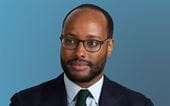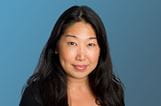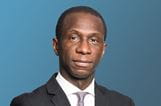The first step is understanding the barriers that exist
Related people
Headlines in this article
Related news and insights
Publications: 10 April 2024
Publications: 18 March 2024
Publications: 15 January 2024
Publications: 31 October 2023
At the highest levels of the legal industry, even in the most international firms, people from minority backgrounds are under-represented. Movement on this issue has been slow, but A&O – like many firms – is trying to make faster progress.

Last year, senior associate Guled Yusuf took part in a series of interviews with colleagues from A&O’s BAME (Black, Asian and Minority Ethnic) network in the UK.
The interviews were the start of more open and candid dialogue about race and ethnicity at A&O, supported by the launch of the BAME network and the start of reporting our ethnicity pay gap in the UK (becoming the first law firm to do so).
In the U.S., the Black and Latinx Affinity Group marked Black History Month and Martin Luther King Jr. Day with events in New York and Washington, D.C., following the success and growth of the Asian Affinity Group. Activity is growing across the Netherlands, South Africa and other offices too.
If understanding the issues and barriers that exist for people within each country is complex, the international picture is even more so. But as a global firm that’s what we must try to do. So here, Guled talks to four colleagues from major cities about their personal stories and how we can start to find more answers.
Different journeys
Guled was born in Switzerland to Somali parents. After spending time in the U.S. and Europe, his parents found themselves unable to return to Somalia because of the increasing violence in the build up to the civil war.
Guled was raised in New York, Vienna, Ottawa and Paris, and believes this upbringing taught him to consider and appreciate different perspectives. “Growing up outside of my own country and culture meant I always had to adapt. That’s made it easier to work with a wide mix of colleagues and clients. I hope it’s also taught me to be open-minded and receptive to new ideas.”
Jean is the daughter of Korean immigrants who came to the U.S. in the 1960s. Her parents met at the University of Illinois, married and settled in the Washington, D.C. area, where she and her brother were born and raised.
“The business of D.C. is politics and law, and that definitely had a lot to do with my decision to go to law school,” Jean says. She wanted to do transactional work with an international angle and found her niche in project finance, something she specialises in at A&O today. Hervé’s family is originally from Benin, West Africa. His grandfather secured French citizenship and moved the family to Bordeaux, after which his parents worked as Beninese and French diplomats, as well as for international bodies such as the Organisation of African Unity and the United Nations. Born in Cameroon, Hervé spent time in France and Benin before moving to Ethiopia and attending an international school in Addis Ababa for ten years, then returning to France.
“I was privileged to see that the world is extremely diverse. That helps you to adapt whenever you go to a new place,” Hervé says, adding that he saw some dramatic events as he grew up.
“In my first six months in Ethiopia, there was a revolution going on. Experiencing that has certainly shaped me – I take things in a relatively cool and calm way.”
Lindani’s story has, not surprisingly, been shaped by South Africa’s history. “As far as diversity here is concerned, it’s a sad story for those who know it,” he says. Despite being part of the majority population, the black community remain very much in the minority in the corporate world, especially at senior levels. At times it has been “quite a lonely environment,” he says.
“We don’t have many people we can identify with in the corporate world – many of my colleagues have come from a different space and went to schools that taught a much broader syllabus. I had a different set of norms.”
Born in the rural Eastern Cape, and growing up in a town that started off as a sugarcane farm, he felt the constraints of the limited school curriculum. He focused on history and geography (only eight subjects were taught), which meant his career options were relatively narrow – the police, nursing or, perhaps, the law.
Madhu felt cultural constraints in a different way. Born into a “very traditional” Hindu family in Hong Kong, her parents struggled with the idea of their fourth and youngest child going to university and into work. “My mum’s attitude was: you need to learn how to be a housewife and daughter-in-law. But that never sat comfortably with me,” she says.
When she did marry, her husband had a different view. Though also Indian by origin, he had been brought up in the UK and told her: “Don’t limit yourself because of society’s expectations.” Her mother-in-law serves as an inspiration – still working in her late 60s while having played a full role as a mother. “Her story is incredible. She has taken her family to where it is today.”
Madhu began her career in financial PR and worked in Tokyo for two years before returning to Hong Kong. She joined A&O in 2018, attracted by the firm’s approach to diversity and pro bono work.

Overcoming challenges
Jean is clear where she has faced her biggest career and life challenge to date – deciding to move to Seoul to open A&O’s first office in South Korea when her son was just eight months old.
“Pounding the pavements, building the office and the team at the same time as raising a child was very challenging,” she says. Her husband, an engineer, decided to become a stay-at-home dad, a move that helped the family through a testing time but caused some surprise among family and friends.
The most enjoyable part of her five-year assignment was working with a diverse group of people. The office was small so it was essential to call on the support of colleagues from across A&O’s Asia Pacific network. Overcoming challenges is all about perspective, she says. “I tried to look beyond the challenge, focusing on the fun side of things and the progress we made with the new office. It was good to know I wasn’t on my own.”
Was it difficult to work in Seoul as a Korean-American, born and raised in D.C.? “Koreans are culturally very open. If you make an effort, they’re very willing to build a relationship, whether that’s as a friend or client. To be frank, it also helped that I like karaoke!”
Going back to D.C. the contrast was clear – “more people, but I missed the diversity,” she says.
Lindani also sees a contrast in his career experiences, comparing his time working for a U.S. firm in New York and being with A&O, to working at a South African firm. “About four or five years ago, I was working in organisations where it felt certain opportunities were reserved for certain types of people. It helps to be working in a place now where decisions are based on merit and everyone is expected to uphold the firm’s values.”
He believes his career success is down to an individual drive and the robust stance taken by South Africa to re-balance the past. “However, certain legal requirements and business incentives in South Africa now sometimes lead to black lawyers being hired to bolster numbers. So I take the view that I’m either going to be useful to an organisation or go somewhere else. I don’t just want to sit there and be part of the furniture.”
Hervé’s perspective of his career progression is similar. French firms have traditionally been conservative, he says, with relatively little gender or ethnic diversity (although he does see things improving). He has many highly capable friends who only achieved their potential by working for the more international, outward-looking organisations.
Hervé himself trained with Clifford Chance. “If I had started with a local firm, I would probably not be a partner now".
His way of overcoming barriers has been to focus on his work.
“Most people don’t see me as black. I could be blue or green. Most just look at me as an expert in my field.
“I’ve never had a problem with identity. My attitude has always been, if you’re not happy with my colour that is your issue.”
In Hong Kong, Madhu sees fewer challenges now. “It’s a very cosmopolitan city,” she says. “Thirty years ago there was significant discrimination and exclusion of Indians, but I’ve never experienced problems or barriers in my career.”
For Madhu, her focus is more on continuing to be successful in work now that she is a mother of two children.
“While my society may give me a hard time for working full-time, I am focused on the long-term value for my children. Ultimately, I want to break the mould and be an inspiration for my children, particularly my daughter.”
The importance of sponsorship
While personal experiences vary greatly, one trend links all five people. Each had someone who, at a crucial time, supported their progression.
“One of my biggest hopes in setting up the BAME network in the UK,” says Guled, “is that we can offer junior colleagues an opportunity to meet mentors and sponsors.
“It’s not always possible to find people with the same background, so it’s less a case of focusing on a cultural or ethnicidentity, and more a case of looking for someone in a role that interests you and who’s willing to share their experiences.”
Jean is also very clear about the importance of sponsorship. “I’ve had multiple mentors and role-models, inside and outside the firm, all of whom have been important.”
“The key to progressing in private practice is to have a strong sponsor – someone who has your back and will speak up for you in the wider partnership.”
Her own sponsor was a “cheerleader”, “a great coach”, and he made sure she got good client exposure. But those relationships are hard to form, she stresses. “You both need to put effort into it. There has to be a good personal fit and a willingness to really engage and invest time. It doesn’t just happen organically.”
Lindani believes he has been lucky in this regard. “Without someone giving you guidance you are likely to end up as a statistic,” he says. Of the black trainees he started with back in 2006, only one is still practising. His own sponsor has supported him at several firms
where they have worked together, including now at A&O. “As a black lawyer in South Africa, it’s not always easy to find a sponsor who will take you under their wing. I was one of the exceptions.” Hervé got backing as a trainee from a senior associate (later a partner), who admired a paper he had published and urged Clifford Chance to hire him. His sponsor also planted the seed that Hervé should aim for partnership. As his career has progressed, he’s also seen the importance of building a strong personal network, with a group of people in law, politics and business he can turn to for support and advice.
For Madhu, it was a female boss at her first job who proved crucial to her development – testing ideas with her, including her in key meetings and giving her encouragement. “I was really worried about being left adrift when my boss moved on. But she just told me, ‘you are ready’. I’ve been lucky. I’ve had really inspirational people around me,” she says.
Drivers of change
So where do the barriers in the legal profession exist? Is it about soft barriers and cultural factors? Is it the lack of role models at the top of the profession or a continuing strand of unconscious bias?
“All of these factors together,” says Jean. “Late recognition of the problem is another issue, so I’m glad we’re talking about this now.”
“Changing behaviour is difficult for anybody. So is recognising unconscious bias – that natural inclination to favour people more like you. But all of these things conspire to create very tangible barriers for people from different backgrounds, making it that much harder to get recognised for your talent,” she says.
Guled agrees. “Doing a good job only gets you so far. If senior colleagues unconsciously perceive a gulf between themselves and a junior colleague – because they’re a different gender or ethnicity – it can make it harder for the junior person to access the opportunities and sponsorship that are critical to career progression.”
Jean sees growing client pressure on the issue of diversity and inclusion as a positive driver for change. “I welcome that pressure. It’s a very good tool to bring about faster progress.”
Lindani has also seen that client pressure first-hand. Diversity scorecards introduced as part of Black Economic Empowerment legislation are helping to change behaviours, he says. “A company that embraces diversity will not want to do business with one that does not.”
For Hervé, it is crucial that A&O keeps looking at its own performance, not least as black representation in the partnership remains low. “By no means should we give priority to people just because of their race, but there are certainly more things we can do.”
He also stresses the need to promote socio-economic diversity – looking for people from different social and educational backgrounds – as well as focusing on race and gender.
“The first step,” Guled adds, “is understanding the barriers that exist – if they didn’t exist, the picture at the top would be different.”
“We need to put our heads together and find answers. Junior colleagues are excited that we’re starting to do this and they will expect to see real change.”
Just be yourself
So what advice is there for young people from minority backgrounds starting their careers today? The answers are very similar.
“Take an interest in different traditions and don’t be afraid to be different,” says Madhu. “Be ambitious and surround yourself with people who inspire you, not pull you down.”
Jean’s advice is to have confidence. “You’ve earned your place and have every right to the opportunities that brings. Recognise those opportunities when they come and create them for yourself when they don’t.
“Don’t shy away from the different voice and perspective you bring. The more perspectives we can throw at a problem, the better and more reasoned the solution will be,” she says.
For Hervé, the key lies in being recognised for your practice. “Focus on your work, but always be yourself and implement your dreams.”
It’s the message he gave to colleagues when elected as managing partner in Paris in 2018.
“I told them, the only way I can make my strategy work is by being myself. If it doesn’t work out you can always choose someone else.”
Lindani agrees:
“At the end of the day, we are who we are. The work we do will guide us and help us to progress. You don’t have to lose your identity to fit in.”


